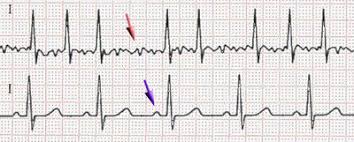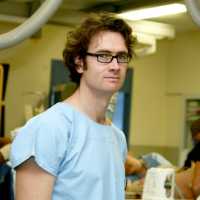
02 Jan Atrial Fibrillation and Alcohol Abstinence
MedicalResearch.com Interview with:

Dr. Kistler
Professor Peter M Kistler MBBS, PhD, FRACP
Head of Clinical Electrophysiology Research
Baker Heart and Diabetes Institute
Head of Electrophysiology at The Alfred hospital
Professor of Medicine
University of Melbourne.
MedicalResearch.com: What is the background for this study?
Response: There is a well known association between alcohol intake and atrial fibrillation form population based studies which demonstrate that for every 1 standard drink the incidence of AFib increases by 8%.
This is the first randomised study to determine of alcohol reduction/abstinence leads to a reduction in AFib episodes and time to recurrence.
MedicalResearch.com: What are the main findings?
Response: The study showed that in patients with recurrent episodes of atrial fibrillation who consumed moderate quantities of alcohol (average of 16 standard drinks per week), significantly cutting down their alcohol intake or abstaining altogether delayed the onset of their next AF episode and reduced the proportion of time spent in atrial fibrillation.
MedicalResearch.com: What should readers take away from your report?
Response: If you have atrial fibrillation and consume more than 10 standard drinks per week you should ideally abstain from alcohol or reduce consumption substantially to determine the impact of this intervention on your episodes and symptoms. This is a much safer and potentially effective strategy with the alternatives being medication and/or catheter ablation. People who abstained from alcohol also saw significant reductions in weight and blood pressure.
MedicalResearch.com: What recommendations do you have for future research as a result of this work?
Response: Ideally a larger study although recruitment was difficult with many patients unwilling to potentially abstain from alcohol.
There were no disclosures.
Citation:
Alcohol Abstinence in Drinkers with Atrial Fibrillation
N Engl J Med 2020; 382:20-28
DOI: 10.1056/NEJMoa1817591
JOIN OUR EMAIL LIST
[mailpoet_form id="5"]We respect your privacy and will never share your details.
Last Modified: [last-modified]
NEJM Alcohol Abstinence in Drinkers with Atrial Fibrillation
The information on MedicalResearch.com is provided for educational purposes only, and is in no way intended to diagnose, cure, or treat any medical or other condition. Always seek the advice of your physician or other qualified health and ask your doctor any questions you may have regarding a medical condition. In addition to all other limitations and disclaimers in this agreement, service provider and its third party providers disclaim any liability or loss in connection with the content provided on this website.
Last Updated on January 2, 2020 by Marie Benz MD FAAD
